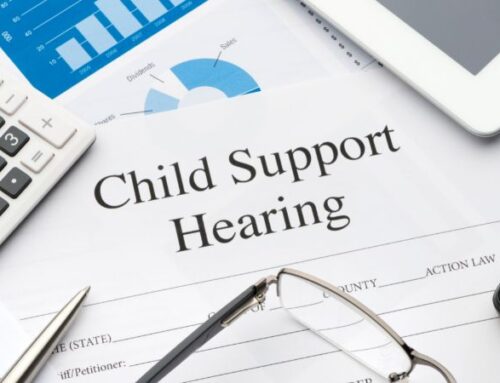
Child support is calculated differently in every state. In California, the court takes a variety of factors into consideration to best estimate how much it may cost to care for a child per month. The state then uses a specific formula to determine the exact amount individual parents will pay. Every divorce is different, which means that child support payments will be too.
If you are in a situation where you may have to pay child support, it is a good idea to learn the basics about child support in California and how it is determined for each family.
What Is Child Support?
Child support is a monthly payment sent from one parent to another after they divorce. These payments are implemented to ensure that the children involved in a separation can still have their needs met, regardless of where they are living or who they are living with. Child support can be used to help buy groceries, clothing, basic necessities, and other things that can benefit the child. In every divorce, one parent is expected to pay child support to help support their children.
Who Pays Child Support in California?
Child support payments are determined using multiple factors, one of the most important ones being the custody agreements that were set. In most cases, the non-custodial parent is making child support payments to their previous partner to help their kids. However, this can change depending on the circumstances of the divorce. The two main kinds of physical custody in California and who pays child support under them include:
Sole Physical Custody
Sole physical custody is commonly granted to one parent, who is referred to as the primary custodial parent. In cases of sole custody, the primary custodial parent is the one who has the children living with them most of the time, while the noncustodial parent often has visitation rights. In these cases, the noncustodial parent must make child support payments to the other parent to ensure that their children’s needs are still met.
Joint Physical Custody
When both parents are granted joint custody in a divorce, determining who pays child support is slightly different. Instead of focusing on who has the kids more often, the focus shifts to the cost of raising the children and which parent is making a higher income. In most joint custody cases, the spouse that had the primary income in the household or the spouse that made more money will be asked to make child support payments, even if custody seems to be split fairly.
How Is the Amount of a Child Support Payment Calculated?
Child support can either be determined fairly through mediation or by the separating couple coming to an amicable agreement that is approved by the court. If the couple cannot work out a child support payment plan on their own, the decision will be handed over to the state.
In California, the state uses what is known as the “income share” method to calculate the total amount an individual parent’s child support payment will be each month. To do so, the court first uses economic tables to determine how much it costs to take care of each child involved every month. This will vary depending on their age, their needs, their location, and more. Then, after creating an estimate for how much a child’s needs may cost per month, the court then takes the income of both parents, regardless of the custody circumstances, and adds them together. The court can then determine how much the noncustodial parent or parent with a higher income will pay by taking a proportional percentage of their incomes.
The percentage of the overall income that the noncustodial spouse makes up will determine how much of the estimated cost of childcare they will have to pay. For example, if the noncustodial parent makes $3,000 per month and the custodial parent makes $1,000 per month, the noncustodial parent makes up 75% of their total shared income. This means that the noncustodial parent will be expected to pay 75% of the estimated childcare costs each month. If the court estimates that it costs around $1,000 per month to care for a child, then the noncustodial parent will pay 75% of that, or $750 per month.
FAQs
Q: How Is Child Support Figured Out in California?
A: To determine child support, the state looks at a variety of different aspects, such as the child custody circumstances, the individual incomes of each parent, the needs of the children, and more. They then calculate the total by using an income share method, which will determine a proportional amount that the noncustodial parent will pay in child support.
Q: What Is the Average Child Support Payment for One Child in California?
A: The court will estimate how much they believe it costs to care for a child each month and then determine a fitting payment based on both parents’ incomes. The average child custody payments for one child in California range anywhere from $400-$800+ per month, depending on the incomes of the custodial and noncustodial parents.
Q: Do You Have to Pay Child Support If You Have 50/50 Custody in California?
A: Even if custody is split fairly between parents, one parent with a higher income may be asked to pay child support to help support their kids in both homes. If you have a disagreement concerning the amount of child support you are paying, it may be best to consult a child support attorney to explore your options.
Q: Is Child Support in California Based on Gross or Net Income?
A: In California, the net income of each parent is used to determine child support payments. The incomes are combined, and then proportional percentages are taken out to determine the total cost of each child support payment per month. The noncustodial parent will pay child support based on the percentage of income determined by the court.
Q: What Is a Child Support Arrear?
A: Child support arrears refer to child support payments that were not made when they were supposed to be. If this occurs, you can have your child support order enforced and the state may penalize the delinquent parent through fines, wage garnishments, asset seizures, or other methods. The money from these sources will be used to pay the back child support.
California Child Support Assistance
At McCunn Law, we understand how stressful determining child support can be. Whether you or a loved one is going through the process of divorce and figuring out child support, having one of our experienced lawyers on your side can make the process immensely easier on everyone involved. To learn more about our legal services and how we may be able to assist with your case, contact us today.

